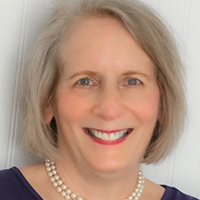Passion Investments: Why High-Net-Worth Individuals are Turning to Luxury Collecting
[vc_row][vc_column][vc_column_text]by Alan L. Olsen, CPA, MBA (Tax)
Mananging Partner
Greenstein, Rogoff, Olsen & Co.
Posted: 3/1/11
In times of economic uncertainty, bad news is good news for collectors and sellers. This uncertainty drives capital out of the stock market but at the same time, causes investments like art, wine and fine jewelry (among others) to enter the market. When typical investments are down, people sell their collectibles and when the stock market seems like a relative loser, art, wine, and fine jewelry can be great investments.
Record low bond yields and market volatility are causing investors to look elsewhere for investment opportunities. Tangible investments which yield a decent long-term return and provide enjoyment are becoming increasingly popular. These “passion investments” are typically rare, luxury items that the investor is passionate about owning and enjoying – from fine art to yachts.
The Capgemini and Merrill Lynch World Wealth Report 2010 found that high-net-worth individuals are returning to passion investment as “investor-collectors”, seeking out those items that are perceived to have tangible long-term value. According to the report, the two categories found to be the most attractive were art and “other collectibles” such as coins, antiques or wines.
Aside from the enjoyment of securing the ultra rare collectible piece, these long-term investments are proving to be a good way to diversify a portfolio:
During the first half of 2010 the Mei Moses All Art Index which tracks auction prices gained 13.5% compared with a 6.5% fall in the S&P500 index during the same period.
The Liv-ex Fine Wine Investables index, which tracks the price of fine wines from 24 chateaux in Bordeaux, was up 27.2% from the beginning of 2010 to the end of August.
In the first quarter of 2010, yacht brokerages closed nearly 30% more sales than a year earlier, with a 70% increase in valuation, according to a survey by UK broker Yachtworld.com.
As long as the financial environment remains uncertain, demand for tangible assets is likely to increase.
Tax Implications
Collectibles are taxed in two different tax brackets:
Short-Term Collectible Capital Gains Tax Rates: Collectibles held less than one year are taxed at personal income tax rates, just like short-term capital gains taxes on stocks or bonds.
Long-Term Collectible Capital Gains Tax Rates: Collectibles held one year or longer are taxed at 28%.
The IRS defines collectibles as:
• Stamps • Fine Art
• Coins • Precious Metals (Including Coins)
• Alcoholic Beverages (Like Fine Wine) • Precious Gems
• Rare Rugs • Antiques
For additional information please see our article Calculating Capital Gains Tax on the Sale of a Collectible at www.GROCO.com or contact Alan L. Olsen, CPA, MBA (Tax), Managing Partner of Bay Area CPA firm Greenstein, Rogoff, Olsen & Co., LLP at 510-797-8661.[/vc_column_text][/vc_column][/vc_row]
Pushing the Boundaries of Science and Technology since 1973: Terrific Insight from Dr. Lee Hood
See Dr. Lee Hood‘s recent interview with Alan Olsen: about pushing the boundaries of science and technology: https://youtu.be/60DDZ0MJ8QE Dr. Lee M. Hood is best known for his development of technologies which have enabled the advancement of predictive, preventative medicine. Dr Hood’s journey began at a young age, when he was an assistant professor of molecular immunology…
Ali Nasser: Building A Successful E-commerce Business From The Ground Up
See Ali Nasser’s interview with Alan Olsen: about Building A Successful E-commerce Business From The Ground Up on YouTube: https://www.youtube.com/watch?v=MJyKKqTCaBM Ali Nasser is a serial entrepreneur who has been helping business owners for nearly twenty years. He understands the legacy dilemma and financial freedom that many business owners face when it comes to their life…
The Master of Retention with Lynn Thomas, CEO of Thomas Consulting Inc
Alan Olsen: discusses how to be a master of retention with Lynn Thomas, CEO of Thomas Consulting Inc. Transcript (software generated) Alan Olsen Welcome to American Dreams. I’m here today with Lynn Thomas. Lynn, welcome to today’s show. Lynn Thomas Thank you for having me on. I’m delighted to be here. Alan Olsen So Lynn,…
The Extinction of Chronic Disease with Dr. Lee Hood, Co-founder of Institute for Systems Biology
Alan Olsen discusses the extinction of chronic disease with Dr. Lee Hood, Co-founder of Institute for Systems Biology (ISB). Transcript (software generated): Dr. Lee Hood If we succeed, the largest transformation of healthcare would be essentially if we could eliminate all chronic diseases. So we spend 86% of our $4 trillion a year in health care…




